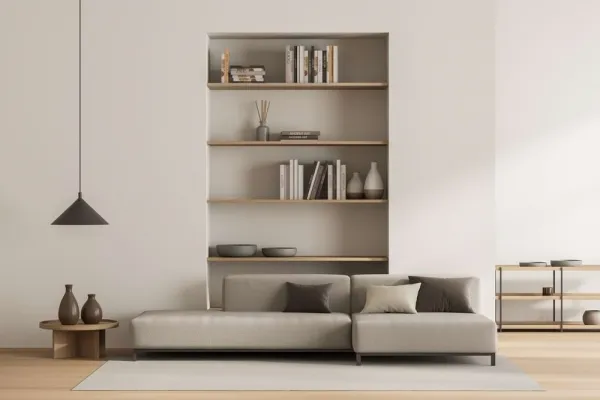Selling your house involves lots of thought and preparation.
You want to stage your property in the best condition possible.
This will get you the best price.
But, in many cases, there are issues that you should ignore.
Here’s a guide on what not to fix when selling your house in the UK.
1. Wall colours
You can’t guarantee that your buyers will have the same taste as you. Aesthetics are highly personal to each individual.
What you think looks amazing, a buyer might hate!
Painting wall colours is time consuming and possibly expensive. Yet, you could make things worse in the process. It’s best to leave it alone.
For example, your buyer might have three daughters and be looking to paint the walls pink. Or perhaps they prefer black wallpaper as it makes it easier to sleep.
It’s impossible for you to guess all of these small details. If your buyer wants to change the wall colours, let them do it themselves.
2. Outdated features
Outdated features are rarely worth updating before you sell.
Your buyer will probably invest money into your house when they first move in. Updating a feature could be a waste of time, if your buyer has a different vision.
For example, your buyer might bring new kitchen appliances with them. Or they could plan on a bathroom renovation anyway.
3. Small cosmetic details
Most home have many small cosmetic flaws. These include scratches on the floor, to worn carpets, and more.
The same applies to the outside of your property. Tiny cracks in your driveaway and footpath are not a big deal.
And a small stain on your tablecloth, or a chipped corner of your mirror, are not worth worrying about either.
Your buyer will often replace these things. And other times, they won’t notice at all. It’s unlikely to impact their offer in any meaningful way.
4. Personalised décor
You want to keep major personalisation to a minimum when you’re selling your house. Each person’s taste is different.
Warm, inviting colours are a smart idea. As are basic steps that lighten a dark house. But paying for new personalised wallpaper, doorstops, curtains or cushions is not worthwhile.
It could turn your buyer away, or they could ask for it to be removed upon completion.
5. Installing new fixtures and fittings
You shouldn’t pay for a new range of fixtures and fittings in your house.
When you host viewings, it’s not clear whether your buyer will want all the fittings removed, or left as they are.
In the former scenario, you’ve spent hundreds of pounds on something that they don’t need.
The same applies to major fittings in your property. Your buyer could want to renovate or extend a room. Once again, you may find yourself spending money for no reason.
6. Major landscaping projects
You want your front and back garden to look as attractive as possible. Cutting the grass and trimming the hedges is a smart idea.
You should avoid investing in huge landscaping projects, though. Building a greenhouse or digging a pond are two ideas that your buyer might not appreciate.
They could have a unique vision for your garden, which you can’t possibly imagine. Simple is best in this scenario.
7. Windows and doors
Updating your property’s windows and doors is a large project.
It’s expensive and have a huge impact on the appearance of your house. You shouldn’t risk something like this – because not everyone will share your taste.
Your buyer could plan to change the colour of your house, meaning your chosen windows won’t match.
Or maybe they want triple glazing, instead of double glazing. Perhaps they want a more expensive material for your front door.
All of these scenarios, and more, could be possible. Let them do the updating once they move in.
8. Huge projects with fluctuating costs
It’s no surprise that the largest home renovation projects are the most expensive. For example:
You shouldn’t do any big projects like this right before selling, unless you’ve planned it well in advance. Buyers could reduce their offer, not increase it, if they aren’t happy with your work.
You’ll also take on all the time, hassle and cost of large refurbishments. It’s best to avoid this, since there’s no guarantee of a return on investment.
















